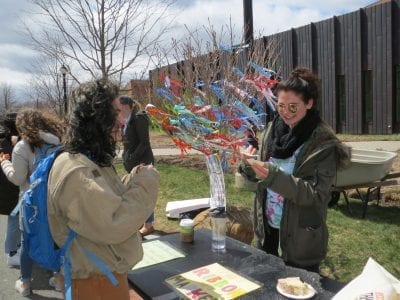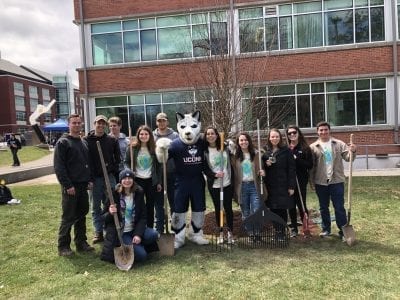Dear UConn community,
As a proud ally of the Lesbian, Gay, Bisexual, Transgender, Queer, Intersex, and Asexual community, I am writing today to mark the significance of the Stonewall Uprising and to highlight a few personal experiences that define the value and importance of human rights and equity.
Pride Month commemorates the Stonewall Uprising of June 28, 1969. Stonewall helped galvanize and catalyze a global movement for LGBTQIA+ rights and liberation. For my family and I, Pride is a celebration of personal freedom and expression and of the unique capacity and value that every human possesses. It is also a recognition that the work must continue and that it is our collective responsibility to stand up for justice and equity.
I am personally influenced by the many LGBTQIA+ people who are striving to make the world a more just and equitable place in their own way. I am particularly inspired by my sister-in-law, who as a chef has overcome bigotry, misogyny and the all-to-frequent toxic masculinity of the food service industry to become one of the world’s leading plant-based culinary experts. She has done all this with deep authenticity and commitment to her core values. She shares her enthusiasm for food and its abilities to bring people together freely and is an especially magnetic personality to my 7-year-old son. I know he loves her for their shared cooking adventures but her influence on him to ‘always be yourself’ is obvious and critical. It does more than any father could enumerate in words. He knows, through her extraordinary example, how to embrace and celebrate differences.
It is these types of relationships – full of love, kindness and acceptance – that are to be gained when, as allies, we celebrate the accomplishments, contributions and uniquely valuable perspectives of people from all walks of life. For my young son and his peers, I want our world to be a joyful, verdant and peaceful place.
That is exactly what my family and I experienced in my own small town’s first Pride parade earlier this month. Hundreds of people come together to celebrate diversity and the genuine feeling of belonging was palpable. My son was so excited to take part in the parade and to be welcomed by so many different people and families. Through this experience he learned a lot about what it means to be proud of who you are…. and I know he was not the only young person who felt empowered and inspired.
Here at UConn, I am also inspired and energized by the many activities, organizations, and groups that strive for justice, equity, diversity, inclusion and belonging. The Vergnano Institute for Inclusion and the Rainbow Center are just a few that are committed to creating a campus where all people feel safe and welcome, regardless of their sexual orientation or gender identity.
Here at the Office of Sustainability we are committed to helping build and maintain a healthy, inclusive community as well; A community that is as talented and authentic as my sister, as joyous and inclusive as a small-town Pride parade and as influential and impactful as the Queer Science Conference.
Specifically, this Office is committed to supporting LGBTQIA+ people by:
- Using inclusive language and pronouns.
- Being an ally in the workplace and in the classroom.
- Challenging discrimination and harassment.
- Participating in LGBTQIA+ events and activities.
- Supporting LGBTQIA+ organizations.
I know that by working together, we will create a more welcoming, vibrant and empowering environment for all! Happy Pride!
Sincerely,
Joe Fullerton
Director of the Office of Sustainability
joseph.fullerton@uconn.edu

